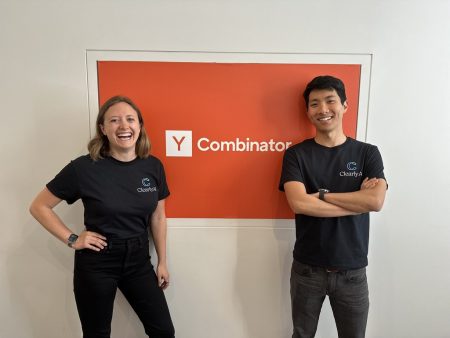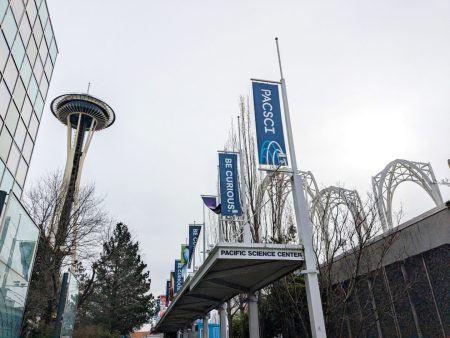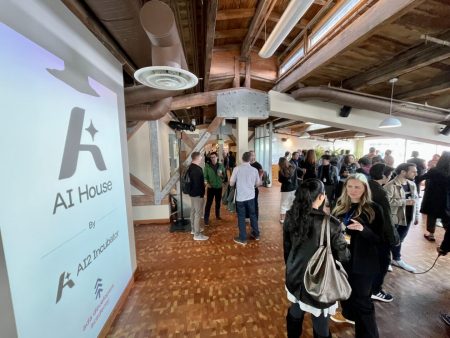Seattle Startups Navigate Growth Challenges in Evolving Tech Landscape
In the heart of Seattle’s Fremont neighborhood, startup founders gathered recently at GeekWire’s headquarters for a summer deck party, sharing insights into the current entrepreneurial landscape. The event brought together a diverse mix of business leaders—from newly bootstrapped ventures to companies fresh off multi-million dollar funding rounds. Their conversations revealed a complex picture of today’s startup ecosystem, where opportunities and obstacles exist in equal measure as they seek sustainable paths to growth.
The talent landscape has evolved significantly in recent months, with many founders reporting surprising success in recruitment efforts. “It’s just still a great area to hire people,” noted Tony Small, CEO of heyLibby, which recently secured $4.5 million for its AI sales and receptionist platform. Several entrepreneurs mentioned leveraging their professional networks and hiring recently laid-off talent as effective strategies. However, filling specialized roles remains challenging for companies like Kapta Space, a radar technology startup that raised $5 million earlier this year. CEO Milton Perque explained their solution: “That requires a relaxing of our requirements for in-office and casting a wider net nationally.” This flexibility in hiring approaches appears to be a necessary adaptation in the current market, where specific technical talent can still command premium conditions despite the overall cooling in the tech job market.
The return-to-office debate continues to divide startup leaders, with compelling arguments on both sides. Some founders emphasized the irreplaceable value of in-person collaboration. Peter Williams, CEO of Muir AI, which raised $3.25 million in 2023, highlighted the spontaneous innovation that happens face-to-face: “Being able to get on a whiteboard whenever, or just turn around and ask somebody a question—it’s a huge unlock.” However, others found office requirements impractical given team distribution. Tony Small of heyLibby abandoned their co-working space experiment after realizing lengthy commutes were counterproductive for team members. The remote-first approach offers distinct advantages as well, with heyLibby co-founder Anna Rodriguez noting it’s a “huge advantage” to access global talent rather than limiting recruitment to Seattle. This divide reflects the broader industry’s ongoing recalibration between flexibility and in-person collaboration benefits.
The current fundraising climate represents what GoodShip CTO David Tsai described as “a tale of two worlds”—with artificial intelligence startups enjoying privileged access to capital while other ventures face significantly higher hurdles. This bifurcation is dramatic, with PitchBook reporting nearly 58% of global venture capital flowing to AI and machine learning startups in the first quarter. Companies like GoodShip, which recently raised $25 million for its freight logistics software, have found themselves in an advantageous middle ground. “We didn’t found the company with an AI mission, but we are finding ourselves to be in a strong position to apply AI to this problem space,” Tsai explained. Meanwhile, entrepreneurs like Caitlin Rollman, founder of talent management software startup Talvita, are opting for bootstrapping to avoid diverting precious time from product development. “The amount of time it would take to raise would mean going and spending a month or two dedicated to raising, versus building the product,” Rollman reasoned, noting that rapid product development might eliminate the need for external funding altogether.
Growth strategies vary widely among Seattle’s startup leaders, particularly regarding the balance between rapid expansion and profitability. After raising $15 million in April, Taylor Halliday, co-founder of help desk software startup Ravenna, remains squarely focused on growth: “The focus is on proving that we are building something viable and [customers] are paying us. There’s no pressure around profitability.” Williams of Muir AI shared this philosophy, emphasizing their mission to “grow the business as large as possible” to maximize customer impact. However, heyLibby’s Small offered a more cautious perspective, noting that future funding rounds can never be guaranteed. “We want to grow really fast and get to our next round,” he said, “but we don’t want to grow really fast and then run out of money in a year.” This tension between aggressive growth and sustainable business practices reflects one of the fundamental dilemmas facing today’s founders in an uncertain funding environment.
Beyond company-specific challenges, founders expressed concerns about macroeconomic conditions, shifting government policies, and competitive differentiation in an AI-accelerated marketplace. Muir AI, originally launched as a sustainability startup helping companies reduce carbon footprints, has adjusted its messaging to emphasize supply chain cost reduction while maintaining its environmental mission. “We’ve had to pivot along the way to make sure our business is going to be resilient with everything that’s going on,” Williams acknowledged. For defense-focused startups like Kapta Space, government procurement practices present particular challenges. “The VCs want to see that the DoD has an appetite to work with smaller companies,” Perque explained. Meanwhile, marketing and differentiation concerns dominated discussions for consumer-facing startups, with heyLibby’s Rodriguez noting that as AI democratizes technology capabilities, “Speed isn’t necessarily a differentiator, but it’s a way to win.” Throughout these varied challenges, GoodShip’s Tsai offered perhaps the most timeless advice for founders: focus on creating genuine, long-term value that customers will pay for with both time and money, rather than “just chasing the optics.” In a tech landscape increasingly shaped by AI hype and funding volatility, this focus on fundamentals may ultimately separate sustainable ventures from fleeting trends.















